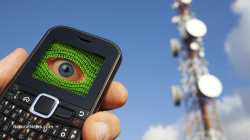[29 / 1 / ?]
https://www.washingtonpost.com/technology/2019/12/24/colleges-are-turning-students-phones-into-surveillance-machines-tracking-locations-hundreds-thousands/
Dec. 24, 2019
Colleges are turning students’ phones into surveillance machines, tracking the locations of hundreds of thousands
When Syracuse University freshmen walk into professor Jeff Rubin’s Introduction to Information Technologies class, seven small Bluetooth beacons hidden around the Grant Auditorium lecture hall connect with an app on their smartphones and boost their “attendance points.”
And when they skip class? The SpotterEDU app sees that, too, logging their absence into a campus database that tracks them over time and can sink their grade. It also alerts Rubin, who later contacts students to ask where they’ve been. His 340-person lecture has never been so full.
“They want those points,” he said. “They know I’m watching and acting on it. So, behaviorally, they change.”
Short-range phone sensors and campuswide WiFi networks are empowering colleges across the United States to track hundreds of thousands of students more precisely than ever before. Dozens of schools now use such technology to monitor students’ academic performance, analyze their conduct or assess their mental health.
But some professors and education advocates argue that the systems represent a new low in intrusive technology, breaching students’ privacy on a massive scale. The tracking systems, they worry, will infantilize students in the very place where they’re expected to grow into adults, further training them to see surveillance as a normal part of living, whether they like it or not.
cont.
Dec. 24, 2019
Colleges are turning students’ phones into surveillance machines, tracking the locations of hundreds of thousands
When Syracuse University freshmen walk into professor Jeff Rubin’s Introduction to Information Technologies class, seven small Bluetooth beacons hidden around the Grant Auditorium lecture hall connect with an app on their smartphones and boost their “attendance points.”
And when they skip class? The SpotterEDU app sees that, too, logging their absence into a campus database that tracks them over time and can sink their grade. It also alerts Rubin, who later contacts students to ask where they’ve been. His 340-person lecture has never been so full.
“They want those points,” he said. “They know I’m watching and acting on it. So, behaviorally, they change.”
Short-range phone sensors and campuswide WiFi networks are empowering colleges across the United States to track hundreds of thousands of students more precisely than ever before. Dozens of schools now use such technology to monitor students’ academic performance, analyze their conduct or assess their mental health.
But some professors and education advocates argue that the systems represent a new low in intrusive technology, breaching students’ privacy on a massive scale. The tracking systems, they worry, will infantilize students in the very place where they’re expected to grow into adults, further training them to see surveillance as a normal part of living, whether they like it or not.
cont.

